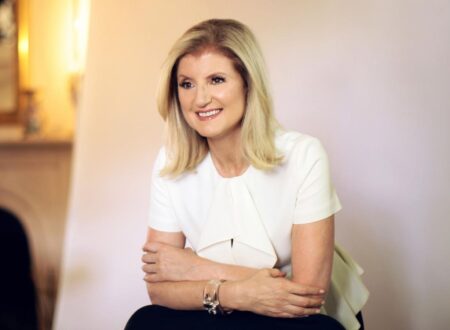Female entrepreneurs face challenges that extend far beyond the well–documented problems associated with raising capital in a male-dominated funding ecosystem. And yet, despite high levels of stress and burnout, the vast majority of female founders enjoy their entrepreneurial journey and while finding ways to work “differently” in pursuit of their goals.
Those are just two of the findings In a new report documenting the experience of 250 entrepreneurs. Authors Yvonne Biggins and Nonie White have highlighted the specific issues reported by female founders while also identifying at least some of the strategies that can help them overcome a set of challenges that include financial anxiety, balancing professional and personal responsibilities and hormonal changes.
Both White and Biggins have track records as entrepreneurs and also work as coaches and psychologists. As they acknowledge, the study started life as market research for their coaching activities but quickly developed into something more.
“We realised that we were onto something that not many people were talking about and that people needed to hear about,” says White. “And as we got into further, we realised we were uncovering best practice that wasn’t commonly being talked about.”
Psychological Stresses
While the report acknowledges the systemic hurdles faced by women in business, the main focus is on psychological stresses.
Inevitably, money – or the lack of it – is a perennial problem. The researchers point to high levels of financial anxiety, with 45% of respondents naming cash flow as a particular worry. This, in turn, leads to mental health issues, such as low mood and negative thinking patterns. It has to be said that many male founders would report similar concerns, so is there really a difference between the experience of men and women
Nonie White says there is. “Every entrepreneur experiences financial anxiety,” says White. “But what makes it particularly powerful for women is the funding disparity that they experience. Whatever the scale of the business, women are operating in an ecosystem where money is tight. ”
In addition, women often have to deal with what Biggins describes as operational overload. “Women often carry the childcare and domestic burden. There is too much to do and too little time. This is the top source of stress,” she says.
The Sandwich Generation
And the data suggests that the majority of women fall into a demographic group that is particularly prone to overload. Most female entrepreneurs in the U.K. are aged between 35 and 54, putting them squarely in the “sandwich generation,” with caring responsibilities for their children and parents. At the same time, women in this age group also experience the hormonal changes hormonal challenges associated with the perimenopause and menopause.
“Hormonal challenges can affect cognition, energy and wellbeing,” says Biggins.”Twenty-one percent said hormonal changes affected their performance and life satisfaction.”
Loneliness also emerged as a problem. Again, this is something experienced by both men and women, often for the simple and very good reason that being the person who makes all the decisions can be incredibly isolating. White says this can be more acute for women.
“Women often lack the networks and role models that men have. Also, if you are a mother running a business, you are probably inspired by the flexibility it gives you, and you are probably working from home, which means you are alone. So there’s the loneliness of being the CEO and the practical loneliness of working alone.”
Finding Solutions
But what can be done to help women overcome the stresses that have been identified? Well, it’s partly about systemic change, something that can really only happen by educating the ecosystem about the challenges faced by women and redressing the present funding imbalance that sees the bulk of VC capital going to men.
But Biggins and White have also identified practices that can help women thrive. One thing they believe all entrepreneurs should do is make time for the things that make life fun and fulfilling.
“The data shows that thriving entrepreneurs invest in their wellbeing,” says Biggins. “They make time for joy and for fun.”
Health and fitness is important. The research suggests that while a high percentage of entrepreneurs do less exercise due to time constraints, those that do make a point of exercising benefit from higher performance scores. Spending time in nature and practising mindfulness are also beneficial.
Often, entrepreneurs can feel guilty about taking time for themselves, but Biggins and White say the data shows that the investment in time and energy pays off in terms of better performance.
Entrepreneurs should seek out support in the shape of coaches, mentors or advisers. Talking with friends and family may be useful but it can also be counter-productive if there is little understanding of what it takes to run a business.
So here’s the good news: the research finds that 97% of women enjoy entrepreneurship, with 66% reporting higher life satisfaction,
Read the full article here











